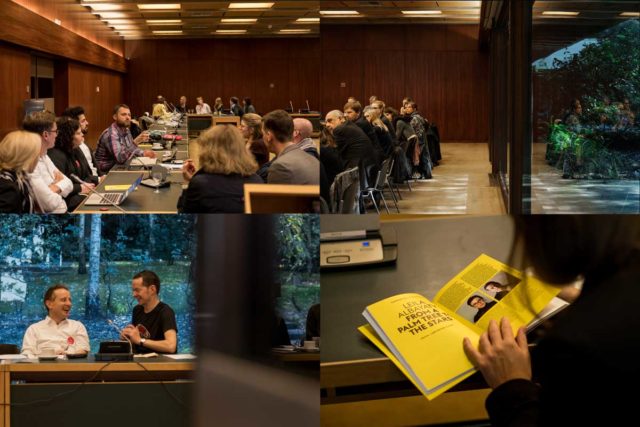The Future Architecture Platform brings together architecture museums, festivals, and organizers from across Europe to communicate topics and questions concerning the future of architecture and cities to a wider audience. For the past year, Forecast has been an associate member of this unique network, which was initiated in 2015 by the Museum of Architecture and Design in Ljubljana. Freo Majer, Artistic Director of Forecast, first met his Future Architecture partners in Lisbon in November 2016. In this interview, he explains how the platform benefits Forecast’s activities.

You recently represented Forecast at a meeting for the Future Architecture Platform for the first time. What did you do there?
It was a working session with all the platform’s member organizations, and it focused on preparing for the coming year and the upcoming EU funding round. The Future Architecture Platform is currently inviting architects from around the world to take part. The member organizations will meet with the 25 most interesting applicants in Ljubljana in the spring of 2017, and will choose one idea they would like to bring to their own institution or festival.
Who are the other Future Architecture Platform members?
They are a wide range of institutions and organizers working on the question of how the future of architecture and the city could be. Some are multidisciplinary platforms or festivals; others are museums with their own buildings and set institutional structures that run throughout a season of events and exhibitions. The Lisbon Triennale is a member of the Future Architecture Platform, and hosted the workshop in November, which took place at the Gulbenkian Foundation in Lisbon. It would be hard to imagine a more inspiring framework.
What is so special about this group and this type of collaboration?
On the one hand, it’s the quality of the partners. I met some really innovative and dedicated people in Lisbon who were extremely open and interested in unusual and groundbreaking approaches. Wanting to investigate the future means that you realize there is still lots to learn. On the other hand, the group is quite small and unbureaucratic, which means we can react quickly to developing topics and work methods.
Forecast is currently an associate member of the Future Architecture Platform. What exactly does this mean?
It’s a wonderful privilege and a very inspiring framework for new experiences. Forecast can realize projects related to our own issues with platform partners and other cooperations; we also make full use of the platform members’ talents and areas of expertise. Forecast itself promises its participants good networking opportunities, and the synergies achieved through the Future Architecture Platform are extremely helpful in making good on this promise.
What are the exact topics that Forecast shares with its platform partners?
In Lisbon we discussed a question that kept cropping up in the project proposals we’ve received: the question of the relevance and responsibility of architecture in the face of a rapidly changing world and the disruptions that have been observed for a long time now. One example is Tobias Nolte, one of our 2015/16 mentees, and his new algorithms. He’s come up with a completely novel way of building by redistributing fragments, debris, and shards. Another example is the work method of Philippe Rahm, one of our 2017 mentors, in the field of sustainable construction. He integrates climatic and atmospheric environments into his projects, and doesn’t try to simply conceal the effects of climate change by using insulation and air conditioning technologies.
Do you think that Forecast will play a significant role in the field of architecture in the future?
Yes, I think it is quite possible. In any case, we can see global processes at work that can be extensively investigated and explained through architecture. This might have to do with the fact that they have a direct, lasting, and often major impact on the most varied areas of life.
